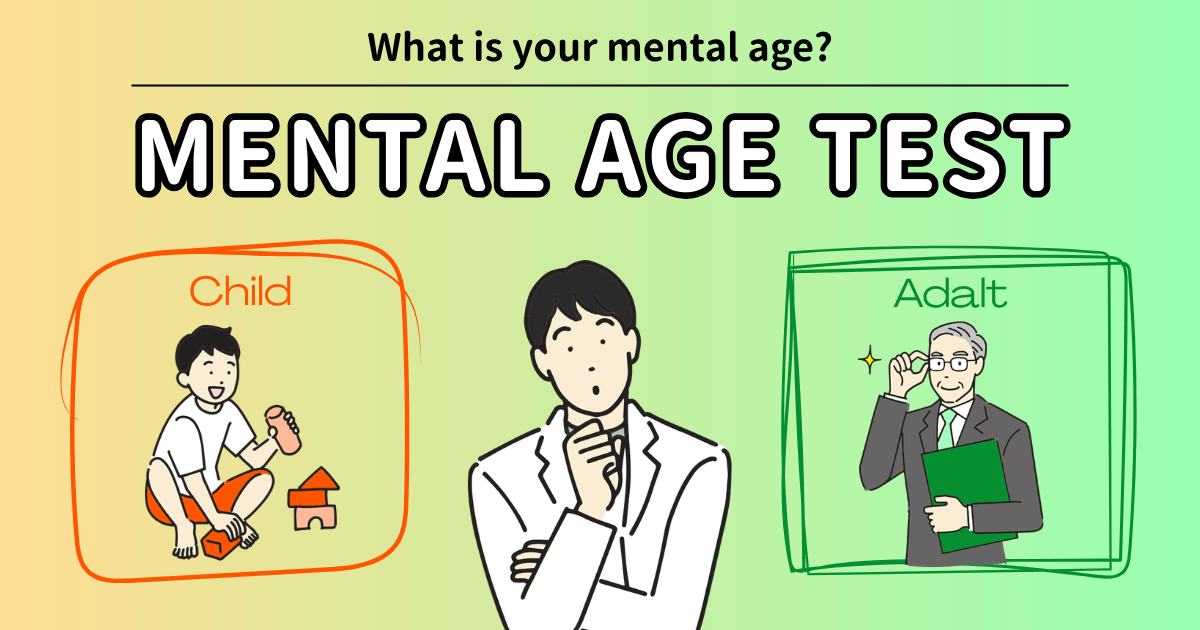
How old do you think you are mentally? Being mature or youthful isn't always about how old you are physically. Take this 50-question quiz to find out your mental age.
Mental age is an indicator of an individual's psychological and emotional maturity. The concept of mental age was first proposed by the French psychologist Alfred Binet in 1905. Unlike actual age, mental age reflects how maturely a person can handle social situations and relationships. Binet originally developed tests to assess children's learning abilities and calculated their mental age based on the results. This was measured by the difficulty of problems they could solve, and their intellectual development level was evaluated by comparing this with their actual age. Nowadays, the term mental age is often used to evaluate a wide range of psychological traits, such as emotional maturity, judgment, sense of responsibility, emotional management, and empathy for others. In this test, your mental age is explored through your reactions to various everyday scenarios. The higher your psychological maturity, the better you are perceived to handle social life and relationships.
| Rank | Country | Average Age |
|---|---|---|
| 1 | Spain | 39.07 |
| 2 | Austria | 38.52 |
| 3 | Switzerland | 38.47 |
| 4 | Costa Rica | 38.45 |
| 5 | Dominican Republic | 38.28 |
| 6 | El Salvador | 38.04 |
| 7 | Chile | 37.95 |
| 8 | Germany | 37.91 |
| 9 | Türkiye | 37.91 |
| 10 | France | 37.87 |
| 11 | Venezuela | 37.76 |
| 12 | Panama | 37.76 |
| 13 | Peru | 37.73 |
| 14 | Colombia | 37.50 |
| 15 | Italy | 37.45 |
| 16 | Puerto Rico | 37.40 |
| 17 | Nicaragua | 37.26 |
| 18 | Guatemala | 36.99 |
| 19 | United States | 36.91 |
| 20 | Ecuador | 36.88 |
| 21 | Mexico | 36.86 |
| 22 | Netherlands | 36.76 |
| 23 | Honduras | 36.62 |
| 24 | Paraguay | 36.57 |
| 25 | Indonesia | 36.50 |
| 26 | Uruguay | 36.47 |
| 27 | Argentina | 36.45 |
| 28 | Bolivia | 36.08 |
| 29 | Brazil | 35.58 |
| 30 | Japan | 31.90 |